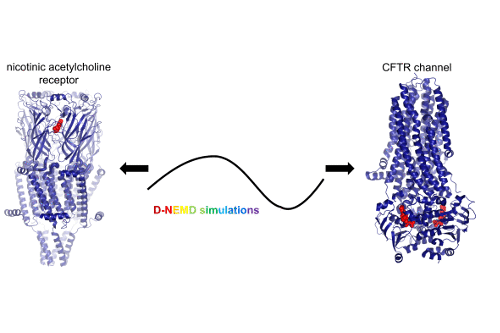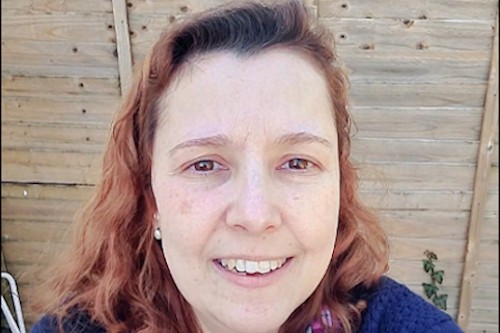Dr Sofia Oliveira is among three successful candidates selected from across the UK and the US to receive £90,000 funding as a 2022 Oracle for Research Fellow and £120,000 Oracle universal Cloud credits, which give researchers the flexibility to use any Oracle Cloud Infrastructure and platform services.
Dr Oliveira’s project aims to transform and accelerate the study of changes in proteins by using an innovative computational method, which allows the response of proteins to a structural perturbation to be mapped in a new way for the first time.
This approach will shed further light on two important biomedical targets. Firstly, the cystic fibrosis transmembrane conductance regulator channel, which is a protein responsible for chloride and bicarbonate equilibrium in cells and its malfunction causes the inherited condition. Secondly, nicotinic acetylcholine receptors which are channels expressed in the nervous system involved in many functions, including cognition and addiction.
Dr Sofia Oliveira said: "This Fellowship is an exciting opportunity to not only expand our fundamental knowledge of each protein’s working mechanisms, but also create new paradigms in drug design and accelerate the discovery of new therapeutics.”
The work will uncover the structural networks connecting functionally important regions within each protein to reveal how small molecules and mutations affect those networks. This knowledge will bolster related drug discovery efforts and create new routes for the development of novel therapeutics to overcome addiction to a range of substances, including nicotine and alcohol, manage chronic pain, and treat cystic fibrosis.
Professor Adrian Mulholland, Director of Research at the University of Bristol School of Chemistry, said: “This award to Dr Oliveira recognises the ground-breaking work she has done combining high performance computing and cloud in biomolecular applications, for example to reveal important features of the SARS-CoV-2 spike protein. Her Oracle Fellowship will allow her to study targets relevant to pain, addiction and cystic fibrosis.”
Alison Derbenwick Miller, VP, Oracle for Research, said: “We created the Oracle for Research Fellows Program to provide further support for the global research community with $100,000 in funding and hands-on collaboration and expertise. The new Research Fellows cohort is set to do groundbreaking research in the medical and STEM fields, especially Sofia at the University of Bristol exploring two important proteins to boost drug design and therapeutics. We couldn’t be more excited to support her along her research journey.”
The Oracle Fellowship programme is open twice a year, in January and June.

